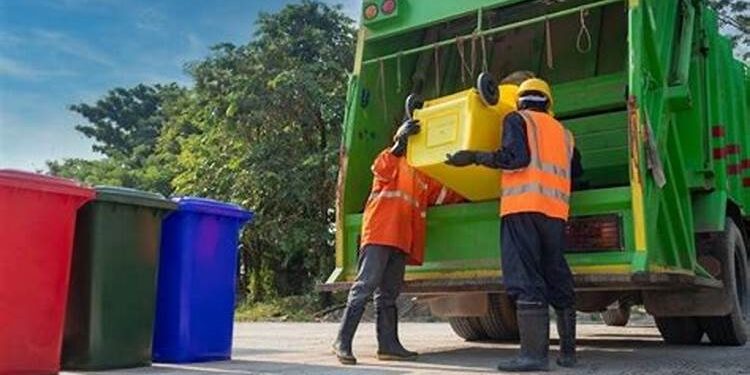A Nation-Wide Challenge Requiring Local Solutions
From the bustling streets of Birmingham to the rural landscapes of the Welsh valleys, from Belfast’s industrial estates to Aberdeen’s oil industry facilities, the United Kingdom faces an unprecedented waste management challenge. With approximately 50 million waste tyres generated annually across the British Isles, communities from Land’s End to John O’Groats are seeking innovative solutions to transform environmental liabilities into economic opportunities.
The transformation is already underway. In Manchester’s industrial quarter, advanced recycling facilities process thousands of tyres weekly. Down in Southampton’s port facilities, similar equipment handles maritime waste. Meanwhile, Edinburgh’s waste management centres have embraced cutting-edge technology that would have seemed impossible just a decade ago.
Regional Challenges, National Solutions
England’s Diverse Requirements
The South East Corridor
London’s sprawling metropolitan area, extending through Kent, Surrey, and Essex, generates more waste tyres than any other UK region. Facilities in Croydon, Basildon, and Maidstone have invested heavily in professional recycling equipment to manage the constant stream from the capital’s 9 million residents and countless commercial vehicles.
The pressure isn’t limited to Greater London. Brighton, Portsmouth, and Southampton face unique challenges from both urban traffic and maritime operations. The Isle of Wight, despite its smaller population, requires efficient solutions to minimise costly mainland transportation.
The Northern Powerhouse
Manchester, Liverpool, Leeds, and Sheffield—the great northern cities that powered Britain’s industrial revolution—are now leading its recycling revolution. In Greater Manchester alone, facilities in Oldham, Bolton, and Stockport have implemented advanced tyre balers that reduce waste volume by 80%, dramatically cutting transportation costs across the Pennines.
Newcastle and Sunderland in the North East have embraced similar technology, with Tyneside’s recycling centres processing tyres from as far afield as Northumberland’s rural communities and Durham’s former mining towns. Even smaller cities like Carlisle, near the Scottish border, have recognised the economic benefits of professional waste processing.
The Midlands Engine
Birmingham, Britain’s second city, alongside Coventry, Wolverhampton, and Leicester, represents the heart of England’s automotive industry. Here, the demand for sophisticated recycling equipment is particularly acute. Facilities in the Black Country process not just passenger car tyres but heavy goods vehicle tyres from the M6 corridor—Britain’s busiest freight route.
Nottingham and Derby in the East Midlands have developed regional processing hubs serving smaller communities across Nottinghamshire, Derbyshire, and Lincolnshire. Even historic cities like Lincoln and Worcester have modernised their waste management infrastructure to meet 21st-century demands.
The South West Peninsula
Devon and Cornwall face unique logistical challenges, with waste often travelling hundreds of miles to processing facilities. Plymouth’s naval heritage means dealing with specialised military vehicle tyres, whilst Exeter serves as a collection hub for rural Devon.
Bristol, the South West’s largest city, has emerged as a regional leader in sustainable waste management. Gradeall International’s equipment has been instrumental in helping facilities from Bath to Bournemouth achieve their environmental targets whilst managing costs effectively.
Scotland’s Highland and Lowland Divide
The Central Belt
Glasgow and Edinburgh, housing most of Scotland’s population, have invested significantly in recycling infrastructure. Facilities in Paisley, Motherwell, and Livingston serve the densely populated Central Belt, whilst Stirling acts as a gateway between the Highlands and Lowlands.
Aberdeen, Europe’s oil capital, faces unique challenges with industrial tyres from the energy sector. The city’s proximity to rural Aberdeenshire also means handling agricultural tyres from one of Scotland’s most productive farming regions.
The Highlands and Islands
The Scottish Highlands present perhaps the UK’s greatest logistical challenge for waste management. From Fort William to Thurso, from Skye to Shetland, communities must balance environmental responsibility with practical limitations. Inverness has become a crucial hub, with modern equipment enabling efficient processing before materials travel south.
The Outer Hebrides and Orkney have pioneered innovative approaches, using compact baling systems that maximise ferry space when transporting waste to mainland processing facilities. Even remote communities in Argyll and Bute have access to mobile processing units that visit periodically.
Wales: Valleys to Coastlines
South Wales Valleys
Cardiff, Swansea, and Newport form South Wales’s urban corridor, but the valleys—from Merthyr Tydfil to the Rhondda—present unique challenges. Former mining communities have repurposed industrial heritage sites as modern recycling facilities, with equipment capable of handling everything from passenger car tyres to agricultural equipment from the Brecon Beacons.
The Welsh Government’s ambitious recycling targets have driven investment from Carmarthen in the west to Monmouth in the east. Even smaller towns like Pontypridd, Bridgend, and Neath have implemented professional-grade processing systems.
North Wales
From Wrexham near the English border to Holyhead on Anglesey, North Wales balances tourism with industrial needs. Llandudno and Rhyl on the coast, Betws-y-Coed in Snowdonia, and Llangollen in the Dee Valley all require tailored solutions that preserve the region’s natural beauty whilst managing waste effectively.
Northern Ireland: An All-Island Approach
Belfast, Northern Ireland’s capital, leads the region’s recycling efforts with facilities serving County Antrim and County Down. Londonderry/Derry in the north-west has developed cross-border initiatives with Donegal, demonstrating how environmental challenges transcend political boundaries.
From Newry near the Republic’s border to Ballymena in County Antrim, from Enniskillen in County Fermanagh to Bangor in County Down, Northern Ireland’s communities have embraced modern recycling technology. The Causeway Coast, including Portrush and Ballycastle, balances tourism with environmental stewardship through discrete, efficient waste processing.
The Technology Driving Change
Advanced Processing Equipment
The transformation of Britain’s recycling infrastructure relies on sophisticated machinery designed and manufactured to exacting standards. From busy urban centres to remote rural communities, the same core technology—adapted to local needs—is revolutionising waste management.
Modern tyre balers, like those manufactured in County Armagh, Northern Ireland, can process hundreds of tyres daily, creating dense, transportable bales that meet PAS108 standards. These machines operate from the Shetlands to the Scilly Isles, proving their reliability across diverse conditions.
Economic Impact Across Regions
Job Creation
From Glasgow’s recycling plants to Portsmouth’s processing facilities, the industry supports thousands of jobs. In Wales alone, the recycling sector employs more people than the steel industry once did, with communities from Wrexham to Pembroke benefiting from green employment.
Cost Savings
Councils from Conservative-led Westminster to Labour-controlled Manchester have reported significant cost savings through modern waste processing. Rural authorities in Cumbria, Northumberland, and the Scottish Borders particularly benefit from volume reduction technology that minimises transportation costs.
Revenue Generation
Recovered materials create revenue streams for local authorities nationwide. Rubber crumb from Bristol supplies playground surfaces in Plymouth. Steel recovered in Sheffield returns to Yorkshire’s manufacturers. This circular economy benefits communities from Inverness to Ipswich, from Aberystwyth to Aberdeen.
Environmental Leadership
Meeting National Targets
The UK’s commitment to net-zero emissions by 2050 requires action at every level. Cities like Oxford and Cambridge, known for academic excellence, now lead in environmental innovation. Meanwhile, industrial centres from Middlesbrough to Stoke-on-Trent demonstrate that economic regeneration and environmental responsibility go hand-in-hand.
Regional Innovation
Different regions have developed specialised expertise. Lancashire focuses on agricultural tyre recycling, serving farming communities from the Fylde Coast to the Forest of Bowland. Norfolk and Suffolk have pioneered solutions for the agricultural sector, whilst Kent—the Garden of England—emphasises horticultural applications.
Success Stories from Across the Nation
Urban Regeneration
In London’s East End, former industrial sites in Barking and Dagenham now host state-of-the-art recycling facilities. Similar transformations have occurred in Liverpool’s docklands, Newcastle’s Quayside, and Glasgow’s Merchant City, where environmental infrastructure supports urban regeneration.
Rural Innovation
The Yorkshire Dales, Lake District, and Peak District—Britain’s most visited National Parks—have implemented discrete waste processing that preserves landscape beauty. Communities from Keswick to Skipton demonstrate that environmental protection and tourism can coexist harmoniously.
Coastal Communities
From Cornwall’s surfing beaches to Norfolk’s nature reserves, coastal communities face unique pressures. Towns like Newquay, Scarborough, Blackpool, and Margate have invested in equipment that handles seasonal variations whilst maintaining the pristine environments that attract millions of visitors annually.
Looking Forward
As Britain continues its journey toward environmental sustainability, every community—from London’s financial district to Orkney’s remote islands—plays a vital role. The technology exists, proven from Belfast to Brighton, from Swansea to Stornoway. What’s required now is continued investment and commitment from England’s shires, Scotland’s glens, Wales’s valleys, and Northern Ireland’s counties.
The recycling revolution isn’t just about equipment or technology—it’s about communities across these islands working together toward a sustainable future. From the white cliffs of Dover to the Giant’s Causeway, from Snowdon’s peak to Ben Nevis’s summit, Britain is transforming waste into opportunity, one tyre at a time.
Conclusion
The transformation of Britain’s waste management infrastructure represents one of the most significant environmental initiatives of our time. Through advanced equipment and innovative approaches, communities from urban Manchester to rural Mull are proving that environmental responsibility and economic prosperity can go hand-in-hand.
This nationwide effort, supported by cutting-edge technology and local determination, demonstrates Britain’s continued leadership in environmental innovation—a tradition that extends from the industrial revolution to today’s green revolution.











































































